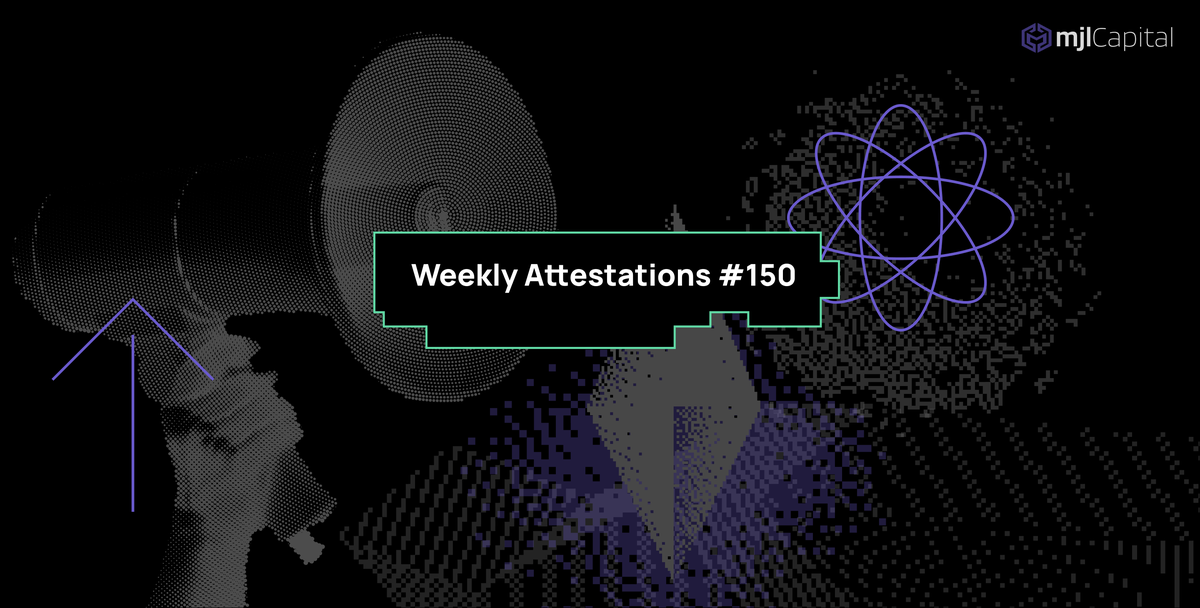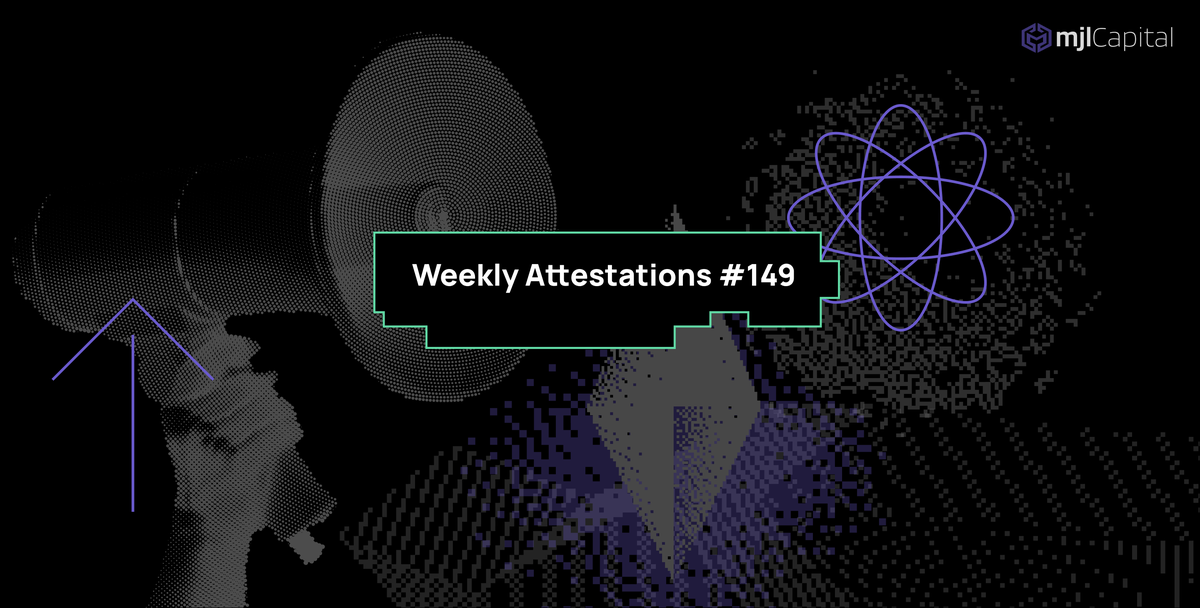The Week In Markets
At last week’s annual Jackson Hole Economic Symposium, Fed Chair Powell signaled a shift in the restrictive monetary landscape that has governed markets over the past two years. Powell’s address confirmed the Fed's belief that inflation is no longer the dominant risk; instead, it’s the labor market that now faces the most pressure. This acknowledgment of evolving economic risks is the clearest indication yet that rate cuts may be on the horizon, a move that digital asset markets have been eagerly anticipating. Bitcoin’s immediate rally to $65K in the wake of Powell’s speech underscores the market’s hunger for any sign of monetary easing, though the rally’s retracement to familiar range levels serves as a sobering reminder of ongoing volatility and indecision.

The implications of what some are dubbing the “Powell Pivot” extend far beyond a single BTC price surge. Lower interest rates could reignite demand across crypto’s critical sectors, most notably in stablecoins and crypto credit. With stablecoin market caps having fluctuated wildly in response to Fed policy—from the 25x increase during the zero-rate era to a $20 billion contraction during rate hikes—the potential for a renewed search for yield could once again catalyze growth. Furthermore, the tepid recovery in crypto lending markets, battered by the collapse of major lenders like Genesis and BlockFi, may finally find the breathing room needed to rebuild. The historical linkage between low rates and robust crypto credit growth is unmistakable; without it, the industry’s “everything rally” remains more aspiration than reality.

Meanwhile, renewed ETF inflows suggest institutional appetite is tentatively returning, albeit with a pronounced BTC bias. Over $500M in net inflows into BTC ETFs last week contrasts sharply with the anemic response from ETH ETFs, highlighting a continued divergence in investor sentiment between the two largest digital assets.

The broader narrative remains one of cautious optimism: stablecoin supply is set to break new all-time highs, signaling underlying ecosystem strength, even as the broader market consolidates. But make no mistake—the path forward is fraught with the complexities of a transitioning monetary regime. While Powell’s pivot may offer a lifeline to risk assets, crypto’s ultimate breakout hinges on a confluence of factors still very much in flux.
Top Stories
ETH-tu Brute?
On August 21, 2024, the Ethereum network's 7-day moving average (7DMA) of daily on-chain volume dropped to $2.37 billion, marking a 9-month low—the lowest since November 2023. This sharp decline, a 54% decrease from $5.17 billion just two weeks prior, has led to multi-year lows in gas fees, with levels not seen since 2020. Additionally, the 7DMA of transactions on Ethereum reached its lowest point since February 2024, with just 1.06 million transactions on August 23, down 5% from the beginning of the week. This downturn in activity may be due to seasonal trends, as Q3 and summer months often see suppressed on-chain activity. The 20% drop in ETH's price since the launch of ETH ETFs has further compounded the situation. Moreover, the Ethereum Foundation recently deposited 35,000 ETH (~$100 million) into Kraken, likely to sell gradually for operating costs, potentially adding further downward pressure on ETH's price.

Source: The Block
Not BLASTing off... Blast Layer 2 Faces Decline Post-Airdrop, Hopes for Recovery Amid User Exodus
Blast, a highly anticipated Layer 2 network, is facing significant challenges following its widely-hyped airdrop, as the platform’s key metrics have experienced steep declines. The daily active user count has fallen to just 30,000, which is 91% lower than Arbitrum's 350,000 users and 53% lower than Optimism's 65,000. Additionally, Blast’s Total Value Locked (TVL) has plummeted over 60% from its peak of $2.3 billion in June to $875 million. This downturn has led to the departure of some of its community members, with PacMoon, the largest memecoin on Blast, migrating to Solana after its token value dropped by 80%. The BLAST token itself has seen a 63% decrease in price from its opening high. Despite these setbacks, there is hope for a recovery, as Blast’s ongoing Season 2 of airdrop farming may stabilize the ecosystem, much like Arbitrum's recovery after a similar post-airdrop decline.

Source: DefiLlama
Revolutionizing Agriculture with Tokenization: Boosting Farmer Profits and Streamlining Global Trade
Tokenization, while typically applied to assets like real estate or art, is poised to transform agriculture by enhancing profitability and efficiency, particularly in cross-border contracts within the $14.4 trillion agricultural market. Currently, fragmented supply chains and reliance on intermediaries result in high costs and low profits for farmers, who often receive a minimal share of the end profits. Tokenization, coupled with smart contracts, can democratize these processes, offering farmers increased earnings, reducing consumer costs, and streamlining international trade. Real-world applications, such as on-chain transactions via platforms like Solana, demonstrate the potential for faster, cheaper, and more transparent agricultural deals. Additionally, innovations like the partnership between Farmsent and Unstoppable Domains allow farmers to connect directly with global buyers, bypassing intermediaries and transacting seamlessly with cryptocurrencies. This approach could significantly boost sustainability and global food security while empowering farmers financially.
PayPal USD Surpasses $1B Market Cap Amid Solana DeFi Incentives
PayPal USD (PYUSD), the stablecoin introduced by PayPal, has achieved a significant milestone by surpassing a $1 billion market capitalization as of August 24, 2024, approximately one year after its launch. This makes PYUSD the fifth-fastest stablecoin to reach a ten-figure valuation, ranking as the sixth-largest stablecoin overall, just behind Ethena USDe and ahead of Tron’s USDD. The growth of PYUSD can be largely attributed to its deployment on the Solana blockchain, which accounted for 64% of its market cap, significantly boosting its popularity. Recent incentives from major Solana DeFi protocols, such as Kamino and MarginFi, have further fueled this surge, offering high annual percentage yields (APYs) for PYUSD deposits. However, concerns about the sustainability of these incentives persist, as analysts question whether the current growth can be maintained without continued high rewards, particularly as lending protocols may struggle to support such incentives in the long term. See similar: PayPal’s $733MM Stablecoin, PYUSD, Growing Faster on Solana Than Ethereum
Regulation
Democrats' Crypto Silence in Party Platform Contrasts with GOP's Pro-Crypto Stance
The Democrats' newly released party platform notably excludes any mention of cryptocurrency, potentially alienating left-leaning voters who hoped for a progressive approach to crypto regulation. This omission stands in stark contrast to the Republican platform, which pledges to end what it calls an "unlawful and un-American Crypto crackdown" and to protect Bitcoin mining rights. Republican nominee Donald Trump has embraced the pro-crypto mantle, speaking at the Bitcoin Conference and revealing his significant Ethereum holdings. Although the Democratic platform was finalized before President Joe Biden withdrew from the race, recent efforts have been made to connect Kamala Harris with the crypto community, including a town hall by Crypto4Harris. Meanwhile, Senate Majority Leader Chuck Schumer has vowed to pass crypto legislation by year-end, seeking to strike a balance between innovation and regulation. See more: Harris Campaign Advisor Says Kamala Will Support Crypto Industry See similar: Top Democratic Donor Breaks from Crypto PACs Over $12 Million Pledge to Unseat Sen. Sherrod Brown
Coinbase and Ripple's $100 Million Push to Influence U.S. Elections Raises Concerns
A report by Public Citizen highlights how major crypto companies, particularly Coinbase and Ripple, have become significant political contributors, pouring over $100 million into super PACs to sway the 2024 U.S. elections in favor of crypto-friendly regulations. This aggressive spending, accounting for nearly half of the $248 million in corporate political donations, has raised alarms about the potential weakening of regulations, potentially putting consumers at risk. The Fairshake PAC, heavily funded by these crypto giants, has emerged as a major player, using these contributions to back candidates supportive of the industry's interests. Public Citizen warns that this influx of money is an unprecedented attempt by the crypto sector to distort democracy for profit, underscoring the urgent need for reforms to curb corporate influence in U.S. elections. The crypto community itself appears divided, with some distancing themselves from certain super PACs, reflecting internal tensions over political strategies.

Source: Public Citizen
Judge Allows SEC Lawsuit Against Kraken to Proceed, Despite Exchange's Optimistic Outlook
A federal judge in California ruled that the SEC's lawsuit against cryptocurrency exchange Kraken can move forward, marking a significant development in the ongoing legal battle. The lawsuit, filed in November 2023, alleges that Kraken operated as an unregistered securities exchange by facilitating transactions in tokens the SEC deems securities, including ADA, ALGO, and SOL. Judge William H. Orrick found the SEC's allegations plausible, allowing the discovery process to continue. Despite this setback, Kraken's Chief Legal Officer Marco Santori framed the ruling as a partial victory, noting that the court distinguished between a token itself and agreements surrounding it, similar to a ruling in the Ripple case. The case represents another chapter in the months-long struggle between Kraken and federal regulators, with Kraken required to respond to the complaint within 20 days.
SEC Rejects Cboe BZX’s Filings for Solana ETFs Amid Security Concerns
The SEC rejected Cboe BZX’s 19b-4 filings for two proposed spot Solana ETFs, leading to their withdrawal from the Cboe website. The rejection stemmed from concerns that Solana might be classified as a security, consistent with the SEC's stance in various court cases. These filings, essential for initiating the SEC's approval process, were not published in the Federal Register due to the SEC's decision. Despite this setback, issuers 21Shares and VanEck continue to pursue Solana ETFs, with their filings still active on the SEC's EDGAR system. The rejected filings could be refiled or amended to address the SEC's concerns regarding Solana's classification.
Other Domestic Regulation Updates
- Crypto is missing from the Democrats' party platform as national convention kicks off
- Telegram CEO Pavel Durov’s Detention Extended After Paris Arrest
- Franklin Templeton Files for EZPZ: ETF Offers BTC & ETH Exposure
Other International Regulation Updates
- Russia’s Largest Search Engine, Yandex, Bans Crypto Exchange, Miner Ads
- China’s Supreme Court Tightens AML Law, Recognizes Virtual Assets for First Time
- Dubai Court Orders Company to Pay Employee in Crypto Per Employment Contract
- Germany Seizes Almost $28MM in Cash in Crypto ATM Sting
Pain & Gain
Pain
- Shaquille O’Neal’s legal battle in Astrals NFT case sees partial dismissal
- McDonald's Instagram account seemingly hacked to promote Solana token 'Grimace'
- Just 3% of PumpFun Traders Have Made Over $1000
- EigenLayer Responds to Claims it Pressured Projects for Token Allocations
- MakerDAO Moves Away From WBTC Over Controversial Custodian
Gain
- Sony Unveils Web3 Division and Layer 2 Network
- NBA All-Star Jimmy Butler and Ben 'BitBoy' Armstrong agree to settle Binance-related class action lawsuit
- Bitwise acquires ETC Group
- Mastercard Partnership: Debit Card Allows Users to Buy Directly From Crypto Wallet
- 1MM Transactions in 1 Month: Blockchain Unicorn 5ire Launches Mainnet
Important Legal Notices
This reflects the views MJL Capital LLC (“MJL”), but it should in no way be construed to represent financial or investment advice. Nothing in this correspondence is intended to constitute or form part of, and should not be construed as, an issue for sale or subscription of, or solicitation of any offer or invitation to subscribe for, underwrite, or otherwise acquire or dispose of any security, including any interest in any private investment fund managed by MJL. Any such offer may only be made pursuant to a formal confidential private placement memorandum of any such fund, which may be furnished to potential investors upon request and which will contain important information to be considered in connection with any such investment, including risk factors associated with making any investment in any such fund. Further, nothing in this correspondence is, or is intended to be treated as, investment or tax advice. Each recipient should consult their own legal, tax and other professional advisors in connection with investment decisions.
Domenic Salvo is a Managing Partner at MJL Capital, helping lead Portfolio Research and Investor Relations.




